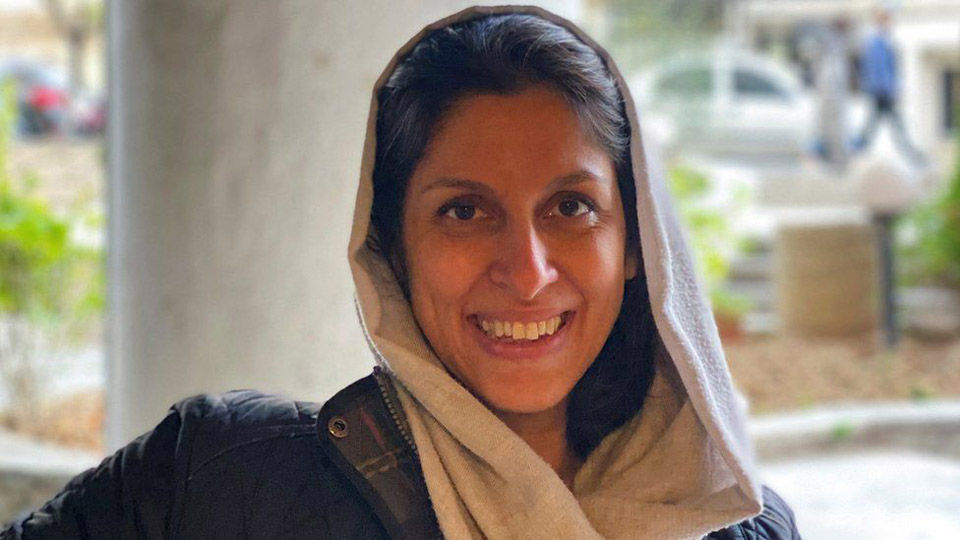
LONDON, March 17, 2022 (BSS/AFP) - Nazanin Zaghari-Ratcliffe was held
against her will for six years in Iran, but has now returned to her husband
and young daughter after a tireless campaign for her release.
The 43-year-old project manager for the Thomson Reuters Foundation, the
philanthropic arm of the media and data agency, finally landed back in the
United Kingdom in the early hours of March 17, after years of false hopes.
Together with fellow freed British-Iranian Anoosheh Ashoori, Zaghari-
Ratcliffe flew from Tehran to Muscat, before travelling on to England's RAF
Brize Norton.
Her husband said it was a "huge relief" when she finally got on the plane
to Oman and was on her way home, a free woman.
"I think it's going to be the beginning of a new life, a normal life, and
hopefully a happy family," he added.
"The first thing she wanted was for me to make her a cup of tea, so we
will do."
Nazanin Zaghari-Ratcliffe's life was torn apart on April 3, 2016, when she
was arrested with her daughter Gabriella, then just aged one, at Tehran
airport.
She was in the country to visit her family for the Iranian new year.
Accused of plotting to overthrow the regime in the Islamic republic, which
she always denied, she was separated from her daughter and had her British
passport confiscated.
In September that year, she was jailed for five years.
Her time in prison was the start of a long struggle, marked by tough days
in isolation and windowless cells, hunger strikes and the withholding of
medical treatment.
She slept in her clothes for more than a month and even contemplated
suicide, her husband has said previously.
"She's always been someone with a keen sense of loyalty and justice. And
definitely deeply outraged to how unfair all this is," he told AFP in 2020.
Visits from Gabriella, a photo of whom she kept by her bed in her cell at
Tehran's notorious Evin prison, kept her going, despite periods of
depression.
- 'Deepest torture' -
In March 2019, London gave her diplomatic protection status, but not
without first making a potentially damaging gaffe.
Prime Minister Boris Johnson, then foreign secretary, suggested in 2017
that Zaghari-Ratcliffe was in Iran to train journalists -- something she
strenuously denied.
In October 2019, Gabriella returned from staying with her maternal
grandparents in Tehran to start school in London.
In an open letter, she said being apart from her daughter -- now aged
seven -- was "the deepest torture of them all".
She sought to fill the void left by Gabriella's departure by video-calling
her every day after she was released from prison due to coronavirus concerns
and placed under house arrest in March 2020.
But unlike other prisoners, she was not pardoned and in April 2021 was
instead handed another 12-month prison sentence for having taken part in a
demonstration outside the Iranian embassy in London in 2009.
She lost her appeal against that sentence in October last year.
Richard Ratcliffe said his wife was clearly being held "hostage" as part
of a political game over an old debt owed by the UK dating back to the time
of the Shah of Iran.
The government never officially linked her detention with what it owed but
soon after her release was announced, the UK said it had settled the
outstanding o400 million bill.
Richard Ratcliffe, who has twice gone on hunger strike to highlight the
case, met his wife in 2007 when she was studying in London. They married two
years later.
Nazanin had already gained a degree in English literature from the
University of Tehran and had worked for the Red Cross and the World Health
Organization in Iran.
In London, she worked for BBC Media Action, the broadcaster's
international charity that supports independent media, before joining the
Thomson Reuters Foundation.
In a letter to her husband a year after her arrest, she said she had once
been proud of being Iranian.
But Tehran had prevented her from "seeing the golden years of our
daughter's life".